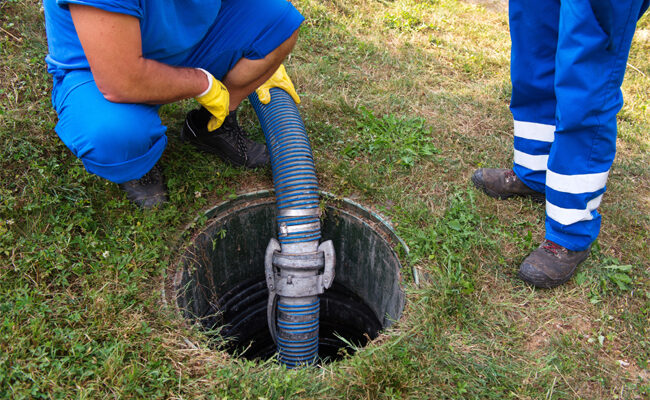
Did you know that one in five homes in America relies on a septic system to handle their waste? If you’ve ever wondered if there is an alternative to staying with your city system, then you’re in the right place. So, keep reading to learn all about septic systems and if they might be right for you.
What Is a Septic Tank?
A septic tank is an underwater capsule that contains the waste from your home. Have you ever wondered where your waste goes after you flush? If you own a septic system you never have to wonder or worry if it’s being responsibly taken care of.
Overall, a septic system is fairly simple. It’s a fully enclosed, water-tight container that holds your waste until you clean it out. They are normally buried far from your home in a distant corner of your land and are usually a great option for those living in a rural area.
If you’re considering buying a home with a septic system or possibly installing one yourself, there are some factors to consider. Let’s take a look at both the pros and the cons of a septic system.
Pros of a Septic System
There are many reasons why homeowners choose a self-sufficient septic tank. Let’s look at some advantages of a septic system:
1. Better for the Environment
City water treatment plants are great for those that don’t want to think about what happens to their waste after they flush. However, the next time a heavy rainstorm floods the sewer system into their water system, we all can see that our waste is never fully out of sight and out of mind.
Stop sending your sewer to the city treatment center where it will be treated and released back into the environment. With a fully contained septic system, your waste is contained safely away in a far corner of your yard. And when it’s full you can responsibly have it emptied by a professional.
2. More Cost-Effective
With a fully self-sufficient septic system, you won’t have to send a monthly or quarterly bill to your water treatment center any longer. Additionally, if you’re building a new home, they are much less expensive to build and add plumbing than a traditional city water plumbing system.
3. Long Life Expectancy
The average septic system will last you between 20-40 years, so you can rely on your system to take care of your sewer needs for decades to come. And when you take care of them, which we’ll talk about in the next section, you can extend their life even longer.
Cons of a Septic System
While septic systems are a great alternative, there are some cons as well. Some disadvantages of a septic system include:
1. It Requires Regular Cleaning and Maintenance
When you have a septic system you must regularly clean and maintain it. If you don’t you run the risk of your system overflowing or backing up into your yard. However, there are several expert Septic Pro Pumping services you can rely on to take of this for you so it isn’t as much of a disadvantage.
2. Stay Aware Of Tree Roots
Needless to say, plants and trees love the nutrients found in compost. And your septic system is a giant compost buffet for tree roots. If the roots of a nearby tree are able to find a small crack in your system they will invade and grow into the crack. This will cause your system to leak into your yard and become a mess.
3. High Water Tables
You also must pay attention to where the water tables are in your area. When your system naturally filters out the water into your drain field it will naturally disperse. However, if the water tables are too high then your soil won’t be able to absorb the extra fluids from your septic system, so pay attention to the levels of your nearby water tables.
Arm Yourself With the Information You Need
As you can see there is a lot to consider when deciding if a septic system is right for you. However, when you’re armed with the information you need you’re sure to find that the right solution for your home.
For more great information on this and other topics check out the rest of our blog.
Leave a Reply